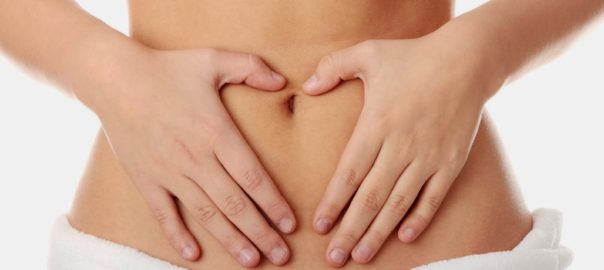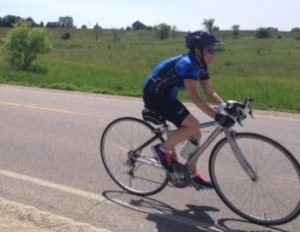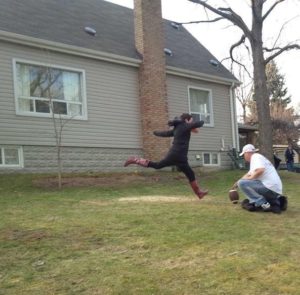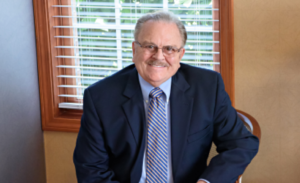Hope for Interstitial Cystitis – Adult Mesenchymal Stem Cells?

Stem cells have had success in treating many conditions. In our clinic we have had great success using stem cells harvested from fat in the treatment of Interstitial cystitis or the painful bladder syndrome.
Millions of patients suffer from the debilitating condition known as interstitial cystitis or painful bladder syndrome. Interstitial cystitis is a condition that results in recurring pain in the bladder and pelvis. It is often accompanied by extreme urgency and frequency of urination. Patients often experience extreme pain and pressure. The pain changes in intensity as the bladder fills or empties. In female patients symptoms often worsen during menstruation. For some interstitial cystitis patients intercourse causes severe pain.
In IC/PBS the bladder wall may become irritated resulting in scarring yielding a stiff non extensible bladder. Sometimes pin point bleeding and ulcerations known as Hunner’s ulcers may be present.
In some patients bladder capacity is decreased and this leads to increased frequency. However many patients with normal bladder capacity using urodynamics still have frequency. Severe cases such as one of this author’s patients urinates up to 60 or 70 times per day. Patients often experience nocturia (frequent nighttime urination). This results in sleep deprivation and chronic fatigue.
The disease is much more prevalent in women. There are however men with the syndrome as well.
Though no one knows the exact cause of interstitial cystitis there are multiple theories. Some of these include an autoimmune response (the body’s own immune system attacks the bladder), a defect in the wall of the bladder that allows the urine to penetrate and irritate the wall of the bladder, some component of urine that irritates and damages the bladder, and changes in nerves that carry sensation from and to the bladder. Even though symptoms often are similar to bladder infection urine cultures are normally negative for infection. Having a family member with IC/PBS may increase the likelihood of a patient developing the disease.
Regardless, the end result is damage to the urothelium and bladder muscle. This damage can range from mild irritation to an ulcerated bladder wall.
Interstitial Cystitis and Adipose Derived Mesenchymal Stem Cells
We are currently investigating the use of adipose derived stem cells for use in many conditions where there is degeneration that results in damage to various organs and systems. Stem cells have regenerative ability to seek out areas of injury and degeneration and assist in repair of nerves, blood vessels, muscle, fat, cartilage, bone and other structures. These reparative cells are recruited by signaling cells; growth factor and platelets to site of injury, inflammation, hypoxia and ischemia. They assist in healing, either by directly forming lost or needed cells, or secreting chemical messengers that promote healing. These stem cells are found in bone marrow but are also found dormant in rich supply in human adipose tissue. The stem cells in adipose tissue are abundant and in some cases up to 2500 times greater than those found in bone marrow. Research has shown fat derived stem cells have regenerative ability equal to bone marrow. Since many believe stem cell success is related to the number of cells used, adipose stem cells have a distinct advantage.
There is significant evidence that stem cells differentiate into smooth muscle therefore bladder repair is possible in IC/PBS patients. It is well-known that patients with IC have abnormal cell signaling and cytokine release. We feel these are the reasons for our success with our treatments. Cell surgical network has developed a protocol using stromal vascular fraction (SVF) obtained from fat. SVF contains high doses of stem cells, growth factor and white blood cells. We inject stem cells directly into trigger points the trigone of the bladder and pelvic floor as well as intravenously.
The SVF is obtained using a closed system utilizing a 60cc syringe liposuction technique under local anesthesia. A state of the art technology is used to isolate the stem cells. Since the cells are from the patient’s own body there is no rejection. Regenerative healing takes time. We don’t expect immediate results. My patients have experienced improvement in between 2 and 4 months. All of our patients are followed in a research registry and data is collected to determine effectiveness.
A recent study by Dr’s Landner, Berman and See evaluated 16 patients of IC patients using systemic and regional deployment of SVF from lipo-aspirate. The patients were all female and ranged in age from 25-89. Frequency, urgency, and pain symptoms were studied. All patients had improvement in either pain, urgency or frequency and significant improvement in all three was seen in most patients. It is well-known SVF has an anti-inflammatory effect. This may also have contributed to the response. SVF has been used for immune-modulation in other conditions and probably addresses any autoimmune aspects of IC/PBS.
In our clinic our results have been excellent. Testimonies from our patients have been exciting. I will share three in this article as follows:
The first is a mail carrier who was in constant pain who had had painful urination every hour. Six weeks after deployment of SVF she wrote me that for the first time in two years she had had three pain-free days. She recently texted me, “ I am doing so much better than I could ever have imagined.“ She is quite a horse lover and is again back riding horses. Says she has her life back.
The second patient is a 30-year-old lady who developed IC/PBS. She was in excruciating pain a significant portion of the time. She and her husband have put off attempting to have a second child because of the nature of her disease. She had constant burning and pelvic pressure as well as pelvic pain. Although she had been on multiple medications she was refractive to treatment. Four months after stem cell deployment with us she called indicating she was off medications and she and her husband are planning their second child. She stated her bladder is not giving her any problems at the present time.
Another patient was going to the  bathroom 60 to 70 times per day. Even the shock of wearing high heel when the heel struck the ground would send her bladder into spasm. Prior to her deployment she had written to me stating, “If I could just hike, kayak, and enjoy my family it would be a miracle.” Three and half months after deployment she sent me a photo of herself riding a bike for the first time in years. She recently completed a 75 K bike race. Now, two years post deployment, she sent recent photos of rock climbing, kayaking, skiing, and wearing high heels!! She is 4 years post treatment.
bathroom 60 to 70 times per day. Even the shock of wearing high heel when the heel struck the ground would send her bladder into spasm. Prior to her deployment she had written to me stating, “If I could just hike, kayak, and enjoy my family it would be a miracle.” Three and half months after deployment she sent me a photo of herself riding a bike for the first time in years. She recently completed a 75 K bike race. Now, two years post deployment, she sent recent photos of rock climbing, kayaking, skiing, and wearing high heels!! She is 4 years post treatment.
She penned a letter to me that she thanks God and stem cells for putting fun back in her life.
penned a letter to me that she thanks God and stem cells for putting fun back in her life.
In conclusion, in our clinic and cell surgical network at large, we feel autologous-based stem cell therapy has a place in the treatment of interstitial cystitis.


